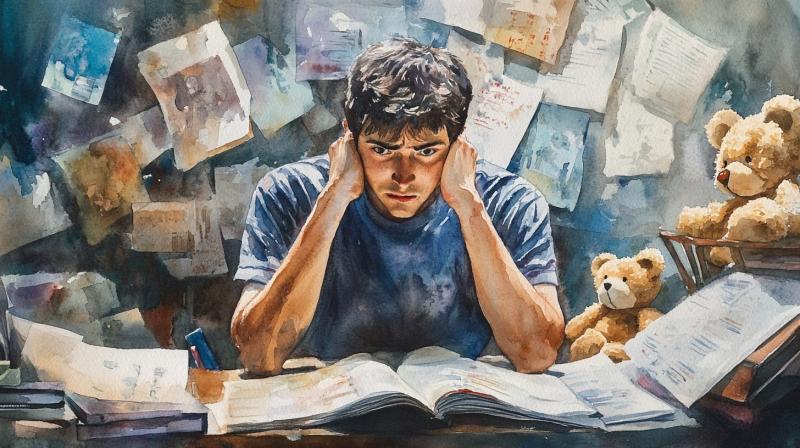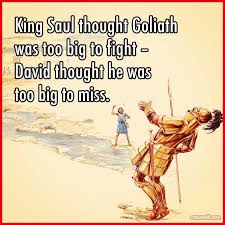
Hindsight is a wonderful thing – but foresight is better
Page Description
Explore ‘Hindsight is a Wonderful Thing,’
an insightful look at how reflecting on past decisions
offers valuable lessons and new perspectives.

Hindsight: the ability to understand an event or situation only after it has happened:
With (the benefit/wisdom of) hindsight, I should have taken the job.
In hindsight, it would have been better to wait.
Cambridge Dictionary
When listening stops, injustice begins.
Justice is not a certainty. It is a choice we must keep making.
Only when we look back do we often see what should have been clear all along.
Injustice does not always announce itself loudly; sometimes it slips in quietly, through overlooked contradictions, misunderstood evidence, or misplaced trust in appearances.
The tragedy lies not only in the mistakes themselves, but in the system’s failure to pause, to question, to truly see.
This page reflects on how justice can lose its way — not through grand corruption, but through ordinary misjudgment and neglected vigilance.
Hindsight reveals the hidden cost of these failures, and reminds us that true justice demands constant awareness, humility, and the courage to confront uncomfortable truths.
“Wanneer het luisteren verstomt, begint het onrecht.”
“Rechtvaardigheid is geen gegeven. Het is een keuze die telkens opnieuw moet worden gemaakt.”
Pas wanneer we terugkijken, zien we vaak wat al die tijd voor onze ogen lag.
Onrecht komt niet altijd met luide trom; soms sluipt het naar binnen, door gemiste tegenstrijdigheden, verkeerd begrepen bewijzen of een blind vertrouwen in schijn.
De ware tragedie ligt niet alleen in de gemaakte fouten, maar in het falen om stil te staan, te twijfelen, en werkelijk te willen begrijpen.
Deze pagina is een reflectie op hoe rechtvaardigheid kan ontsporen — niet door groot kwaad, maar door gewone vergissingen en verslapte waakzaamheid.
Hindsight onthult de stille prijs van deze misstappen, en herinnert ons eraan dat ware rechtvaardigheid vraagt om voortdurende alertheid, nederigheid, en de moed om de ongemakkelijke waarheid onder ogen te zien.
The Achilles’ Heel of the Judiciary
The Achilles’ heel of the judiciary is its tendency to stumble by failing to recognise contradictions.
When courts overlook clearly impossible data, ignore available evidence, or are misled by confusion and errors in judgement, the result can be both damaging and unimaginable.
It is strange that the judiciary does not take a step back when faced with a false narrative. At its core, justice cannot function without a foundation of sound, professional judgement.
Sometimes, individuals fall through the cracks and become the object of justice, even when justice is not applicable to their situation.
The scale of judicial errors in seemingly simple cases — such as Liam Allan’s, which serves as a template for this website — reveals a troubling truth: part of the justice system lacks normal, independent, and fair functioning.
We cannot ignore the tension between appearances and the harmony of life (see Hyacinth Bucket in the first two minutes of the video). Justice should never be treated as a toy.
It is incompatible with the idea of justice that a legal system could damage people and place them in harmful circumstances. Justice must never do what should never be allowed to happen.
A court decision should be a triumph of common sense.
Yet sometimes, the judiciary finds itself lost in confusion, with no reliable reference points, no grasp of the data, and no understanding of what really happened — trapped by tunnel vision or the scapegoat mechanism.
It is as if a judge, a jury, or an authority figure is operating in total darkness — making decisions and imposing measures that simply do not fit the situation.
It resembles a plane landing at the wrong destination because a crucial step in the procedure was overlooked.
When decisions are based on coincidence, confusion, or the wrong influences, they no longer meet the basic requirements of justice. In such cases, it becomes impossible to reach a correct and constructive outcome.
Justice — whether exercised by a judge, jury, or authority — cannot be hasty, careless, or driven by assumptions.
Assumptions can lead us completely astray, plunging us into a swamp of mistakes with serious consequences.
Summary
- Justice is sometimes clearly wrong.
- What we see above is senseless justice: an uncontrollable chain of events, triggered by accident or misjudgement, spiralling out of control. That is not justice — it is chaos.
- This is not limited to one country. It is a worldwide phenomenon.
- Raising awareness of these miscarriages of justice — and making them part of public discussion — is essential, because they strike at the core of human dignity and life itself.
- It is no longer acceptable to sweep such failures under the carpet. To do so is socially wrong.
De achilleshiel van justitie is het gebrek aan aandacht voor tegenstrijdigheden.
Wanneer onmogelijke gegevens niet worden opgemerkt, misleidende informatie niet wordt doorzien of evident bewijs wordt genegeerd, raakt justitie verstrikt in inschattingsfouten. Het lijkt onvoorstelbaar, maar het gebeurt.
Opmerkelijk is dat justitie geen pas op de plaats maakt wanneer ze met een oneigenlijk voorwerp te maken krijgt. In essentie zou iemand alleen met justitie in aanraking mogen komen als daaraan een gezond en professioneel oordeel voorafgaat.
Toch kan het gebeuren dat iemand tussen de mazen van het net glipt en onterecht onderwerp wordt van justitie, terwijl de situatie daar helemaal niet om vraagt.
De mate waarin zich ernstige fouten voordoen in ogenschijnlijk eenvoudige zaken – zoals bij Liam Allan (de template van deze website) en andere voorbeelden op deze site – maakt duidelijk dat er binnen justitie een structureel tekortschietend domein bestaat, waarin onafhankelijkheid en eerlijkheid ontbreken.
Men kan het contrast tussen het monster van de schone schijn en de harmonie van het leven niet negeren (zie Hyacinth Bucket in de eerste twee minuten van de video). Justitie mag nooit een speeltje worden.
Het valt niet te rijmen dat justitie mensen beschadigt en in ellendige omstandigheden brengt. Justitie mag geen dingen doen die in geen enkel opzicht aanvaardbaar zijn.
Een rechterlijke uitspraak zou een overwinning van het gezond verstand moeten zijn.
Soms raakt justitie verstrikt in een verwrongen beeld, zonder referentiepunten, zonder kennis van feiten, en zonder besef van wat er werkelijk is gebeurd. Tunnelvisie of het zondebokmechanisme kunnen dan de overhand krijgen.
Het is alsof een rechter, jury of autoriteit in volledige duisternis opereert en beslissingen neemt die totaal niet van toepassing zijn.
Vergelijk het met een vliegtuig dat op de verkeerde bestemming landt omdat er in de procedures iets cruciaals over het hoofd is gezien. Een verkeerde bestemming.
Men raakt dan verstrikt in toevalligheden en verwarring, gestuurd door foutieve beïnvloeding – dat beantwoordt niet aan de kernprincipes van justitie. In zulke willekeurige processen is het onmogelijk om tot een helder, juist en inspirerend oordeel te komen.
Justitie – of het nu een rechter, jury of andere autoriteit betreft – mag niet overhaast of slordig handelen.
Wie zich baseert op aannames kan er volledig naast zitten en wegzinken in een moeras van vergissingen, met alle gevolgen van dien.
Samengevat
- Justitie gaat soms onmiskenbaar de fout in.
- Zinloze justitie, zoals hierboven beschreven, ontstaat uit oncontroleerbare processen, toevallig of accidenteel in gang gezet, die volledig ontsporen. Dat is geen normale justitie, dat is chaos.
- Het is een wereldwijd fenomeen.
- Bewustwording van dit verkeerde soort justitie, en het bespreekbaar maken ervan, is noodzakelijk – omdat het raakt aan de kern van het menselijk bestaan.
- Het onder het tapijt vegen is niet meer van deze tijd. Het is maatschappelijk onaanvaardbaar.
JFL Prank – Man In Woman Shoes
2 apr. 2011